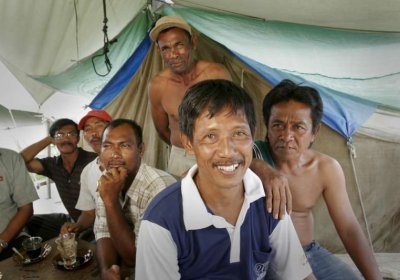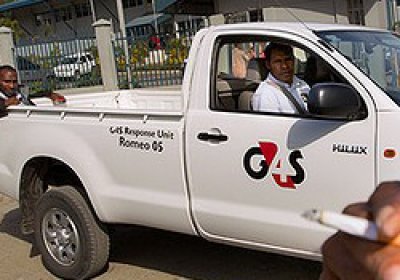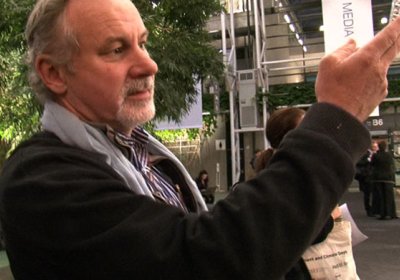A Senate committee recommended on November 24 that immigration minister Scott Morrison’s sweeping migration amendments be passed by parliament.
The Migration and Maritime Powers Legislation Amendment (Resolving the Asylum Legacy Caseload) Bill 2014 would give Morrison unprecedented powers without the scrutiny of either parliament or the courts.
Jay Fletcher
Here are some numbers. There were 51.2 million refugees and displaced people worldwide at the end of last year. About 11,000 Australian protection visas are available, worldwide, each year, for people overseas who have applied for asylum.
Australia’s total share of the 11.7 million refugees officially registered with the UN refugee agency is 0.3%.
A campaign organised by Cambodians has led the country’s first vice-president of the National Assembly to urge Australia to back down from its bid to resettle refugees there.
Kem Sokha said in a letter to the Australian Ambassador to Cambodia, Alison Burrows, that the deal to transfer up to 1000 refugees from Nauru could have “negative impacts which would possibly be caused by economic, social situations”.
Joyce Fu, who works for NGO Corner Link and was part of organising protests and petitions calling for the refugee deal to be abandoned, said Cambodia was ill-equipped for the plan.
Doctors have spoken out for refugees in unprecedented numbers, as an open letter to the government signed by more than 62,000 Australians was handed to parliament on October 20.
The letter, signed by more than 240 health professionals, legal experts and academics, accuses the government of “willfully and deliberately” harming refugees.
The decision to deny 11-month-old Ferouz Myuddin a protection visa precedes a plan by Tony Abbott’s government to retrospectively deny all babies born to asylum seekers the right to seek refugee status.
An amendment bill containing extensive changes to the Migration Act was tabled by the federal government last month. The bill would remove most references to the refugee convention and legalise boat turnarounds.
The Coalition government also wants all babies born to asylum seekers who arrived by boat after August 13, 2012 to be declared “unauthorised maritime arrivals”.
Continuous protests in the Nauru refugee detention camp peaked with up to 600 people breaking out of the family compound just after midnight on October 10.
An asylum seeker told Sydney’s Refugee Action Coalition (RAC): “Day to day, night to night, the situation on Nauru is getting more serious for us.”
The protests have been accompanied by self-harm and suicide attempts, including one person hanging themselves, a 15-year-old girl swallowing detergent, others ingesting washing powder, lip-stitching and a hunger strike.
G4S was labelled “fundamentally flawed” in 2005, when its operation of onshore detention centres led to the wrongful detention and mistreatment of Australian resident Cornelia Rau, as well as the detention of Naomi Leong from birth until she was three years old, and several cases of “unsafe and inhumane” treatment of refugees.
Every day, Manus Island detainees negotiate rocky ground strewn with coral, rotting shower blocks and “filthy” living conditions.
They do this mostly in rubber thongs. A cut foot is likely, septicemia possible and a heart attack followed by a coma and brain death?
Wait a minute, let’s go back.
The first asylum seeker to be forcibly returned to Afghanistan begged an Australian court for help the day he was due to be deported.
The judge used a two-year out-of-date security assessment of Afghanistan to rule that the 29-year-old ethnic Hazara’s home district, Jaghori, was “reasonably stable”.
“Jaghori is confined, it’s like a prison,” the man said through an interpreter, the Sydney Morning Herald reported. “The surrounding areas are all controlled by the Taliban. Many people die on the way to Jaghori.”
The release of up to 150 children under the age of 10 from residential detention is not a humanitarian move by the government, in case you were wondering.
Immigration minister Scott Morrison claimed that issuing bridging visas to 150 children and their families to live in the community was a “dividend of stopping the boats”.
An inhumane policy that damages some to deter others. Detention centres that cause psychiatric disorders, self-harm and suicide. Arbitrary. Unjust. Cynical.
This is how an open letter, named "J'accuse", signed by more than 220 psychiatrists, human rights lawyers, priests, health professionals and other experts describes Australia’s refugee policy.
The 157 Tamil refugees who refused “a very good” deal to be deported to India now face the orchestrated despair of detention on Nauru.
The refugees were delivered to Nauru on August 2 without the knowledge of their lawyers and reportedly showing “clear signs of manhandling and trauma”. Human rights lawyer George Newhouse said he had “not had the opportunity to inform our clients of their rights and options.
- Previous page
- Page 2
- Next page









